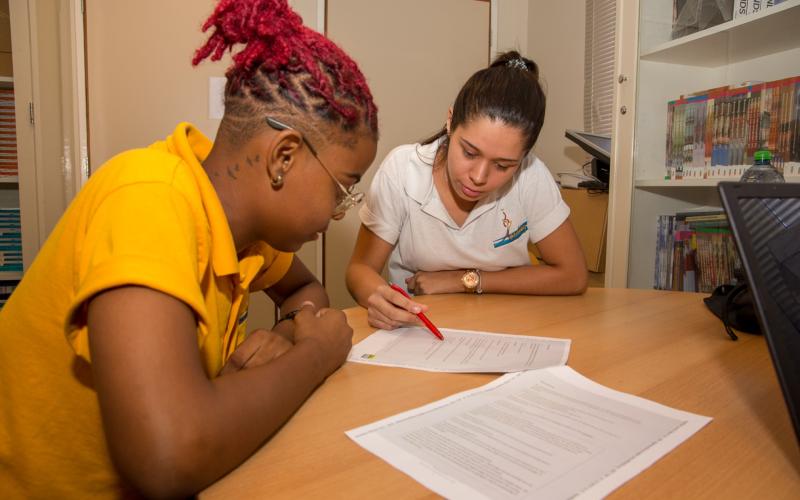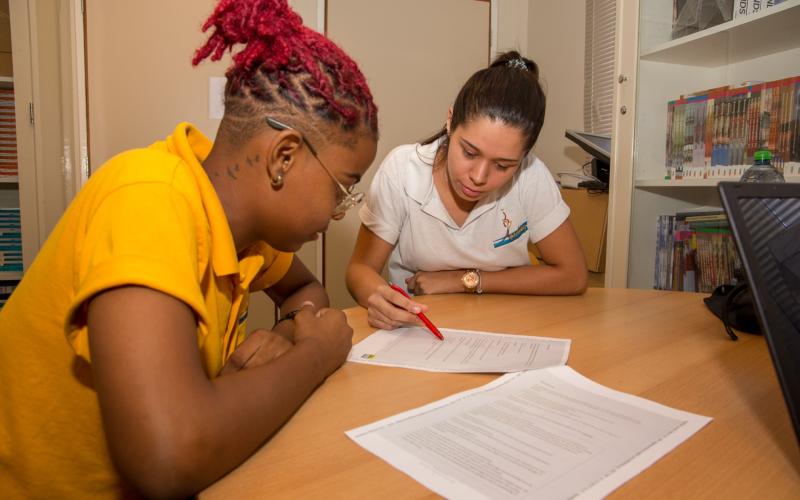
The Dutch National Ombudsman sees improvements in the situation of Caribbean students coming to the Netherlands to study. Improvements continue to be made in the preparation and guidance of students, for example. Also, most Caribbean students are now eligible for Dutch basic health insurance and the associated healthcare allowance. The Ombudsman believes there is still room for further improvement. His latest findings are published in a final report today. He now passes the baton, and calls on the Steering Group on Academic Success for Caribbean Students (Regiegroep Studiesucces Caribische Studenten) to work together to further improve the situation for the students.
In 2020, the National Ombudsman investigated the problems faced by students from the Caribbean part of the Kingdom when they come to the Netherlands to study. He noted that information provision and guidance for students was poor. Also, they were unable to apply for a Citizen Service Number (BSN) before heading for the Netherlands. A BSN is essential if they want to open a bank account, for example. In addition, they were unable to access Dutch basic health insurance, despite holding Dutch passports. This made them ineligible for healthcare allowance. Thinking they were eligible, however, students went ahead and applied for the allowance. They were left facing financial difficulties as a result of having to repay the allowance later. Finally, the Ombudsman saw that students often struggled to repay their student debt after returning to the islands. This led to significant financial challenges and difficulties for the Caribbean students.
Ombudsman targets improvement
In the report titled ‘Concerns of Caribbean Students’, the Ombudsman made a number of recommendations. To ensure his report was not simply left to gather dust, he committed to closely monitoring and pursuing the necessary improvements. “Students from the Caribbean part of the Kingdom encounter all kinds of problems that are not faced by students who were born in the Netherlands,” says National Ombudsman Reinier van Zutphen. “That is unfair and wrong. I have therefore been working hard with my colleagues over the past few years to ensure that the problems faced by Caribbean students are resolved as soon as possible.” Amongst other things, the Ombudsman called on ministers to take action, published progress reports, sought contact with other stakeholders and concerned parties and organised roundtable discussions.
Action remains necessary
While it is pleasing to note that improvements have been made, there are also areas of concern. Van Zutphen: “Better information and guidance are now available for Caribbean students. In addition, work is underway to examine the feasibility of Caribbean students being issued with a BSN as soon as they apply for student grants or loans through DUO. I believe these are really good and positive steps. On the other hand, there is an issue in that this cannot yet be arranged for students in the coming academic year 2023-2024. That is unfortunate and disappointing. I also see that students need help finding accommodation and ensuring their timely registration in the Key Register of Persons (BRP) of municipalities. They also need more help coping with the complex laws and regulations in the Netherlands. Added to that, I am aware of the continued difficulties students often have paying off their student debt on returning to the islands. So, we cannot afford to slacken in our efforts, and we have to keep pressing ahead.”
Ombudsman passes the baton
The Ombudsman is now passing the baton. A strong foundation has been laid in recent years. The proper parties know how to find one another, and the task is clear. The Ombudsman therefore calls on the Steering Group on Academic Success for Caribbean Students to analyse, where possible in partnership with the Aruba House, the Curaçao House and the St. Maarten House, what is needed to resolve the remaining problems faced by Caribbean students as soon as possible. And to bring that continuously to the attention of government bodies. The Ombudsman will, of course, continue to monitor developments and help Caribbean students if they have a complaint.

